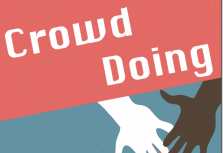
Opportunity Details
Volunteer with CrowdDoing Virtual Talent Manager/Talent Business Partner, Volunteer, (Global).Are you passionate about making a difference and developing your talent management skills? Join CrowdDoing as a Volunteer Talent Business Partner and play a vital role in driving systemic change through social innovation.As a Talent Business Partner, you will work with a dynamic and collaborative team to support our efforts at addressing social, economic, and environmental challenges facing our world. You will have the opportunity to design a volunteer role that aligns with your impact goals, professional development goals, experiential goals, and curiosities through our use of ikigai and self-determination theory.
Our venture lab at CrowdDoing runs proto-ventures such as our Catastrophic Wildfire Prevention initiative ( http://preventwildfire.world/) that rely on the critical support of talent business partners for interdisciplinary collaboration and micro-leadership. You will have the chance to contribute to addressing major global challenges and make a lasting impact through systemic change.
Service learning and skilled volunteering are efficient and effective ways to acquire the skills needed for talent management in a VUCA world. Join us for an overview and introduction to our systems change venture lab portfolio and find the perfect alignment for your goals and our efforts. We encourage a solutions-oriented, ""what's possible"" mindset and approach that contributes to a culture of curiosity.
Don't miss this opportunity to make a difference and grow your skills. Volunteer with CrowdDoing as a Talent Business Partner for Interdisciplinary Research Oriented Systems Change Ventures.
What makes us different? CrowdDoing aims to support social innovations with transformative impact potential through global multi-disciplinary volunteering, micro-leadership and service learning. We work through operating leverage for systems change to achieve collective agency. We orient to ikigai and self-determination theory in order to help each person have the perfect role. Ideally join us with solutions-oriented, ""what’s possible"" mindset and approach that contributes to a culture of curiosity. Micro-leadership is a subject we've written about publicly in a top leadership publication- https://real-leaders.com/leveraging-micro-leadership-to-make-aspirational-goals-achievable/
Service learning and skilled volunteering have demonstrably
been efficient and effective approaches to helping individuals acquire skills for talent management in a VUCA world (a world increasingly filled with Volatility, Uncertainty, Complexity and Ambiguity). These are the talent management skills of the future.
Service learning is importantly beneficial because it is real-world complexity oriented through addressing problems in the world. Engineers working in collaboration with project managers and
human resources professionals are all impacted in their roles by systems beyond their
disciplines. There are skills that researchers have demonstrated are learnable particularly efficiently through service learning. These skills include:
o practical ingenuity
o creativity
o good communication
o project management
o leadership
o high ethical standards
o and strong sense of professionalism.
According to Fast Company, the four skills human resources leaders will need in the future are: Learning agility, business & data acumen, storytelling, and creativity (https://www.fastcompany.c
om/90206307/four-job-
skills-the-hr-leaders-of-the-
future-will-need). According to the Career Muse, the future of talent management will require skills in ""problem-solving ability, systems thinking, technology understanding and comfort with ambiguity."" (https://www.thecaree
rmuse.co.in/future-hr-
2020-onwards/). According to the Human Resources Certification Institute, the future of talent management will require strategic advisory, data analysis, cultural stewardship, and talent development skills. As the Harvard Business Review notes, the best leaders are ""constant learners"". 49 The article went on to identify: ""There is no other way to address the wicked problems facing us. If work is learning and learning is the work, then leadership should be all about enabling learning.
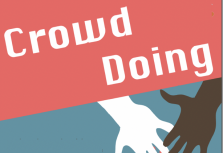
Opportunity Details
CrowdDoing Learning & Development Volunteers Needed/Instructional Design Volunteer Leaders Needed for Nature Counter by CrowdDoing.The framework will synthesize and simplify existing literature on specific health and commerce benefits of specific ""doses"" of nature. The gap between the research and its applications will be filled in by the ""citizen scientists"" involved-a practice that has been used to excellent effect in fields such as astronomy, ornithology, and conservation science. The customizable nature of the App encourages individuals and institutions to experiment with and pilot nature-immersion interventions that are right-sized to their goals. They have the opportunity to test for themselves the degree to which increasing nature ""doses"" for their institution increases productivity and employee wellbeing. Our aim is to co-create nature immersion research by embedding the process of research localization into the piloting process so that each organization ends up with the toolkit of nature immersion capabilities most suited to their needs.
When organizations get evidence of increased performance, they are likely to make permanent nature-based interventions. For example, a hospital with two divisions could have surgeons in one division get ""flex time"" to be free to spend 50 minutes a day in a local park. (A GPS-enabled application would confirm that they, in fact do spend that amount of time in the park.) After a specified period of time, their medical mistake rate and burn-out rate could be compared with that of the surgeons in the control group. Each organization can choose to utilize research metrics and methods that have the greatest bearings on their needs. Research methods such as Networked Improvement Communities, Context Variation by Design, and Positive Deviance are examples of methodologies that have demonstrated that proof-of-concept experiments can be emulated and customized across a network. Our goal is to help individuals as well as organizations and institutions, by making it easy for them to acquire the health literacy to decide how much time in nature they need to achieve their goals.
The framework will synthesize and simplify existing literature on specific health and commerce benefits of specific ""doses"" of nature. The gap between the research and its applications will be filled in by the ""citizen scientists"" involved-a practice that has been used to excellent effect in fields such as astronomy, ornithology, and conservation science. The customizable nature of the App encourages individuals and institutions to experiment with and pilot nature-immersion interventions that are right-sized to their goals. They have the opportunity to test for themselves the degree to which increasing nature ""doses"" for their institution increases productivity and employee wellbeing. Our aim is to co-create nature immersion research by embedding the process of research localization into the piloting process so that each organization ends up with the toolkit of nature immersion capabilities most suited to their needs.
Our objective is to eliminate this disconnect between the importance of nature and how nature is treated. Our team of researchers and experienced practitioners believe that this disconnect is so ingrained in societies that it can only change organically, from the bottom up. We believe that when more and more individuals and more and more managers in businesses are helped to experience the positive effects of nature, and then enabled to identify ways to efficiently preserve nature without sacrificing personal and professional gain, then nature will become a more important a factor in decision-making. As individuals and managers become adept at factoring in the importance of nature in their personal and strategic decisions, they will be more likely to embrace the preservation of nature as a goal-one which the global climate change crisis makes all the more important. Eco anxiety can reduce mental wellbeing but eco-immersion combined with collaboration on nature-based solutions that benefit the climate can both improve the mental health of individuals and the resilience of the cities in which they live.
The framework will synthesize and simplify existing literature on specific health and commerce benefits of specific ""doses"" of nature. The gap between the research and its applications will be filled in by the ""citizen scientists"" involved-a practice that has been used to excellent effect in fields such as astronomy, ornithology, and conservation science. The customizable nature of the App encourages individuals and institutions to experiment with and pilot nature-immersion interventions that are right-sized to their goals. They have the opportunity to test for themselves the degree to which increasing nature ""doses"" for their institution increases productivity and employee wellbeing. Our aim is to co-create nature immersion research by embedding the process of research localization into the piloting process so that each organization ends up with the toolkit of nature immersion capabilities most suited to their needs.
When organizations get evidence of increased performance, they are likely to make permanent nature-based interventions. For example, a hospital with two divisions could have surgeons in one division get ""flex time"" to be free to spend 50 minutes a day in a local park. (A GPS-enabled application would confirm that they, in fact do spend that amount of time in the park.) After a specified period of time, their medical mistake rate and burn-out rate could be compared with that of the surgeons in the control group. Each organization can choose to utilize research metrics and methods that have the greatest bearings on their needs. Research methods such as Networked Improvement Communities, Context Variation by Design, and Positive Deviance are examples of methodologies that have demonstrated that proof-of-concept experiments can be emulated and customized across a network. Our goal is to help individuals as well as organizations and institutions, by making it easy for them to acquire the health literacy to decide how much time in nature they need to achieve their goals.
Responsibilities
Create and execute learning strategies and programs
Evaluate individual and organizational development needs
Implement various learning methods companywide (e.g. coaching, job-shadowing, online training)
Design and deliver e-learning courses, workshops and other trainings
Assess the success of development plans and help employees make the most of learning opportunities
Help managers develop their team members through career pathing
Track budgets and negotiate contracts
Hire and oversee training and L&D Specialists
Preferred Requirements and skills
Current knowledge of effective learning and development methods
Familiarity with e-learning platforms and practices
Experience in project management and budgeting
Proficient in MS Office and Learning Management Systems (LMS)
Excellent communication and negotiation skills; sharp business acumen
Ability to build rapport with employees and vendors
BSc/BA in Business, Psychology or a related field
Professional certification (e.g. CPLP) is a plus
Why join CrowdDoing's Nature Counter? Join us as a CrowdDoing Learning & Development Volunteer Needed/Instructional Design Volunteer Leaders Needed for Nature Counter by CrowdDoing and you can collaborate to help democratize ecotherapy.
Here is why you should consider volunteering with us on this:
Our Brains are Wired for Nature-- natural elements-including trees, grass, water, and even buildings-can improve health outcomes and reduce stress and burnout among employees and medical workers.
We are optimizing the Nature Counter framework to deliver maximum impact for public health by making it easy for individuals and organizations to incorporate nature-based activities into their work.
We are seeking dedicated volunteers to help us realize the ultimate goal of this project.
Who can you help?
The Nature Counter aims to improve the health and lives of countless individuals and medical workers across the country and all over the world.
Organizations all over the world use our Eco-Learning approach to integrate natural elements into their environment to create a healthy and productive work environment.
Volunteers are an integral part of our success. Volunteers collaborate with CrowdDoing on Nature Counter flexibly. You can either lend your expertise and be hands-on, or you can help us coordinate the efforts of other volunteers to make this project a success.
You and your skills and experience have the potential to transform the ecotherapy movement in an era where everybody, is prioritizing wellness, environmental stewardship, and employee wellbeing via getting enough ecological immersion for each person.
Why contribute to CrowdDoing's Nature Counter?
As a volunteer you will be working on the cutting edge of innovative approaches to nature-based interventions.
You will be contributing directly to CrowdDoing's mission of bringing nature back into people's lives.
You will be working with highly motivated, forward thinking professionals who are passionate about helping others.
You will have the opportunity to shape the future of this project. We are looking for volunteers to help us co-create this framework.
Digital volunteers visit webinars about ecotherapy, read books about ecotherapy, and read scholarly articles about case studies of ecotherapy from the people who are already practicing it. We are then aiming to make this field self-navigable for people who are new to ecotherapy.
Are you interested in learning more of what exists online from research created by experienced ecologists and help us communicate these scientific findings to a broad audience? Do you want to help us democratize ecotherapy?
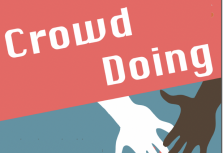
Opportunity Details
Role Brief:Role Name:
Scrum Master - CrowdDoing.world's Nature Counter
Min Qualifications required: Bachelors / Masters
Min Experience Required: (in no. of yrs) 2+
Experience or Knowledge in a specific subject or area required: Experience software development, project management
Minimum Volunteer hours required: (in hrs per week) 5-20
Project Overview:
Project Name:
Nature Counter
Project Duration: (in months) 6-12 months (Ongoing)
Project outline:
120 minutes a week in nature is a basic minimal nature dose every person in a city should achieve as a matter of public health. 90 minutes a day five days a week every week is an optimal recommended dose of nature for every person in a city. CrowdDoing studied biophelia in cities and found that there are more than one hundred diseases that can be prevented through access to nature. Nature Counter is a CrowdDoing concept, imminently to become a functional prototype that lets each person see if they are getting that level of time in nature per week or per month. Time in nature is approximated through the kind of nature that exists in cities- geo-locations of people based on their cell phones when they are in parks. Nature Counter tracks each person’s time in park when the application is on. This allows people to track it the way step counters track it. The aim is to have a universal public health goal of getting the city’s people to have enough time in parks to realize the biophelia collective health dividend. The concept is that nature is both an individual activity and a collective goal that friends should encourage each-other to achieve. Nature Counter is aimed at getting each person to track their time in nature and adjust their calendar over time to increase their time in nature. Our estimations are that people’s time in nature would rise if they could track this and have target goals for their health due to time in nature accordingly.
Biophelia counter builds off of the evidence that people who use step counters walk 27% more than people who don’t. http://www.nbcnews.com/id/21901412/ns/health-fitness/t/people-walk-mile-more-if-wearing-pedometer/ Assuming Nature Counter can achieve similar results for biophelia, whatever percentage of the city who downloaded the nature counter application. Assuming that San Francisco residents visit parks at an average level, they would visit parks 29 times a year- https://www.nrpa.org/blog/29-number-of-times-americans-visit-their-local- parks-annually/. Assuming the minimal dose goal, each person would need to increase that by another 40% to get to an average of a weekly visit to a local park and experience of biophelia. Each person would need to expand that dose by 1000% to reach the optimal dose. This is where a biophelia counter can come it and help people reach for more biophelia time in their lives.
Understand and fulfill international data security and protection requirements, and interface with regulators.
Essential Tasks:
At a high level, the following tasks will need to be performed:
Serve as the Scrum Master for project; will be both technical and non-functional activities managed in agile manner
Facilitate Agile ceremonies such as sprint planning, backlog grooming, retrospective, etc.
Help guide and establish Agile best practices and help implement the proper tools
Groom and maintain the backlog with the Product Owner
Assists the team in achieving their sprint goals by consistently reinforcing good Scrum principles and practices, and helping the team continuously improve.
Eliminates impediments and removes blockers by working with a wide range of stakeholders until a resolution is reached, so that the team can remain focused on achieving their objectives
Skills & Competencies:
● At least one year of Scrum Master experience leading a software development or engineering team
● CSM or other Agile certifications
● Successful experience applying Agile concepts and techniques driving projects to completion
● Hands on experience with Agile tools (preferred, not required)
If you have any questions about processes for joining CrowdDoing.world as a volunteer to support our efforts in systemic change please write to volunteerorientation@crowddoing.world""
""Realizing that nature is a collective benefit for the health of a city, CrowdDoing.world is working with cities worldwide to institute measurable biophelia goals. Biophelia goals include metrics such as how much time people spend in nature, frequency of parks and parks visits, and time spent in parks.
A biophelia counter is a concept CrowdDoing.world is developing that will aid people in tracking their biophelia, or the amount of time they spend in nature. CrowdDoing.world is partnering with local groups of volunteers to develop, test, and launch biophelia counters in each city.
Biophelia counters will use geo-location technology to track how often people access parks. Each biophelia counter will have a mobile app that tracks how often a person accesses a park, and for how long. The biophelia counter app will also track whether the person visited a park before or after going to work, or after coming home.
Biophelia counters will track goals set by cities for biophelia, so people will know that they are getting the proper amount of biophelia, and time in nature. CrowdDoing.world will be collaborating with cities to set goals, so biophelia counters will help people track their progress in achieving their goals.
A biophelia counter will allow people to set goals for themselves, and to track their progress in achieving their biophelia goals. There are hundreds of diseases that can be prevented through access to nature. By tracking biophelia, biophelia counters help people achieve the goal of biophelia.
With this project, CrowdDoing.world wants to create a community of volunteers around biophelia. Through this project, people can participate in the creation of the first global network of biophelia counters. By using biophelia counters, people can better understand their health and wellness, and set healthy goals.
If you'd like to join our Nature Counter team in CrowdDoing.world working to build the first global network of biophelia counters, please fill out this form, and follow the instructions.
Explore an interactive urban nature system as an Explorer. While in the forest, you will learn about biodiversity, the impacts of climate change, how to communicate and engage with others, and how to save our biodiversity via responding to scientific concerns about climate change. You will explore the forest and its significance to global biodiversity.
Through the lens of urban ecology, we explore the relationship between human development and the natural environment. We seek to understand the complex interplay of urbanization, biodiversity and ecosystem services, which underlie the conservation of wildlife, and ecotherapy and forest therapy. We also want to generate innovative ideas for how forests can be incorporated into urban environments in order to maximize their ecological value and human psychological and physiological benefits.
Our program is designed to give you an introduction to the field of Urban Ecology, forest therapy, attention restoration theory, and nature deficit disorder reduction. Nature Counter users will learn from the app and the course a deeper understanding of the importance of the natural world, as well as new perspective on the urban environment and our impact on it and its impacts on people. In addition, participants will have a greater appreciation for forests, trees, and other species of plants and animals, and for the vital role that they play in sustaining life on Earth, and helping to improve human mental health, productivity, and many dimensions of wellbeing.
The goal is to democratize nature immersion as a self-care tool for everyone in every field of practice.
Nature counters are a first step towards that goal - but they cannot replace personal engagement with nature. They are not substitutes for the human touch of nature immersion.
We are now ready to take the next steps towards democratizing nature immersion as a self-care tool for every field of practice. We envision future forest therapy programs that teach you how to build your own nature counter. It will be possible to share experience with fellow nature enthusiasts, to find nature based events near you, and to build a network of like minded nature enthusiasts. The idea is to create a system where you can easily engage with nature and nature immersion wherever you are, whenever you want.
As part of the process, a set of best practices developed for the private sector can be used to standardize nature immersion in the public sector.
In addition, a new field of research into nature immersion and its impacts on organizations' culture, operations, and bottom line.
How would the world change if we were able to assure every person in every organization in the world has the opportunity to engage in the kind of personal, hands-on, nature immersion experiences that are proven to improve their health, reduce their stress, and increase their productivity?
Imagine a future where every person in all sorts of jobs gets an optimal dose of nature.
This is our vision of a world where everyone has access to nature. Where a day in nature is a normal part of any job.
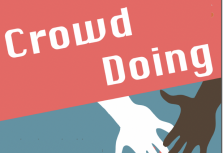
Opportunity Details
Role Brief:Role Name:
Scrum Master - CrowdDoing.world's Nature Counter
Min Qualifications required: Bachelors / Masters
Min Experience Required: (in no. of yrs) 2+
Experience or Knowledge in a specific subject or area required: Experience software development, project management
Minimum Volunteer hours required: (in hrs per week) 5-20
Project Overview:
Project Name:
Nature Counter
Project Duration: (in months) 6-12 months (Ongoing)
Project outline:
120 minutes a week in nature is a basic minimal nature dose every person in a city should achieve as a matter of public health. 90 minutes a day five days a week every week is an optimal recommended dose of nature for every person in a city. CrowdDoing studied biophelia in cities and found that there are more than one hundred diseases that can be prevented through access to nature. Nature Counter is a CrowdDoing concept, imminently to become a functional prototype that lets each person see if they are getting that level of time in nature per week or per month. Time in nature is approximated through the kind of nature that exists in cities- geo-locations of people based on their cell phones when they are in parks. Nature Counter tracks each person’s time in park when the application is on. This allows people to track it the way step counters track it. The aim is to have a universal public health goal of getting the city’s people to have enough time in parks to realize the biophelia collective health dividend. The concept is that nature is both an individual activity and a collective goal that friends should encourage each-other to achieve. Nature Counter is aimed at getting each person to track their time in nature and adjust their calendar over time to increase their time in nature. Our estimations are that people’s time in nature would rise if they could track this and have target goals for their health due to time in nature accordingly.
Biophelia counter builds off of the evidence that people who use step counters walk 27% more than people who don’t. http://www.nbcnews.com/id/21901412/ns/health-fitness/t/people-walk-mile-more-if-wearing-pedometer/ Assuming Nature Counter can achieve similar results for biophelia, whatever percentage of the city who downloaded the nature counter application. Assuming that San Francisco residents visit parks at an average level, they would visit parks 29 times a year- https://www.nrpa.org/blog/29-number-of-times-americans-visit-their-local- parks-annually/. Assuming the minimal dose goal, each person would need to increase that by another 40% to get to an average of a weekly visit to a local park and experience of biophelia. Each person would need to expand that dose by 1000% to reach the optimal dose. This is where a biophelia counter can come it and help people reach for more biophelia time in their lives.
Understand and fulfill international data security and protection requirements, and interface with regulators.
Essential Tasks:
At a high level, the following tasks will need to be performed:
Serve as the Scrum Master for project; will be both technical and non-functional activities managed in agile manner
Facilitate Agile ceremonies such as sprint planning, backlog grooming, retrospective, etc.
Help guide and establish Agile best practices and help implement the proper tools
Groom and maintain the backlog with the Product Owner
Assists the team in achieving their sprint goals by consistently reinforcing good Scrum principles and practices, and helping the team continuously improve.
Eliminates impediments and removes blockers by working with a wide range of stakeholders until a resolution is reached, so that the team can remain focused on achieving their objectives
Skills & Competencies:
● At least one year of Scrum Master experience leading a software development or engineering team
● CSM or other Agile certifications
● Successful experience applying Agile concepts and techniques driving projects to completion
● Hands on experience with Agile tools (preferred, not required)
If you have any questions about processes for joining CrowdDoing.world as a volunteer to support our efforts in systemic change please write to volunteerorientation@crowddoing.world""
""Realizing that nature is a collective benefit for the health of a city, CrowdDoing.world is working with cities worldwide to institute measurable biophelia goals. Biophelia goals include metrics such as how much time people spend in nature, frequency of parks and parks visits, and time spent in parks.
A biophelia counter is a concept CrowdDoing.world is developing that will aid people in tracking their biophelia, or the amount of time they spend in nature. CrowdDoing.world is partnering with local groups of volunteers to develop, test, and launch biophelia counters in each city.
Biophelia counters will use geo-location technology to track how often people access parks. Each biophelia counter will have a mobile app that tracks how often a person accesses a park, and for how long. The biophelia counter app will also track whether the person visited a park before or after going to work, or after coming home.
Biophelia counters will track goals set by cities for biophelia, so people will know that they are getting the proper amount of biophelia, and time in nature. CrowdDoing.world will be collaborating with cities to set goals, so biophelia counters will help people track their progress in achieving their goals.
A biophelia counter will allow people to set goals for themselves, and to track their progress in achieving their biophelia goals. There are hundreds of diseases that can be prevented through access to nature. By tracking biophelia, biophelia counters help people achieve the goal of biophelia.
With this project, CrowdDoing.world wants to create a community of volunteers around biophelia. Through this project, people can participate in the creation of the first global network of biophelia counters. By using biophelia counters, people can better understand their health and wellness, and set healthy goals.
If you'd like to join our Nature Counter team in CrowdDoing.world working to build the first global network of biophelia counters, please fill out this form, and follow the instructions.
Explore an interactive urban nature system as an Explorer. While in the forest, you will learn about biodiversity, the impacts of climate change, how to communicate and engage with others, and how to save our biodiversity via responding to scientific concerns about climate change. You will explore the forest and its significance to global biodiversity.
Through the lens of urban ecology, we explore the relationship between human development and the natural environment. We seek to understand the complex interplay of urbanization, biodiversity and ecosystem services, which underlie the conservation of wildlife, and ecotherapy and forest therapy. We also want to generate innovative ideas for how forests can be incorporated into urban environments in order to maximize their ecological value and human psychological and physiological benefits.
Our program is designed to give you an introduction to the field of Urban Ecology, forest therapy, attention restoration theory, and nature deficit disorder reduction. Nature Counter users will learn from the app and the course a deeper understanding of the importance of the natural world, as well as new perspective on the urban environment and our impact on it and its impacts on people. In addition, participants will have a greater appreciation for forests, trees, and other species of plants and animals, and for the vital role that they play in sustaining life on Earth, and helping to improve human mental health, productivity, and many dimensions of wellbeing.

Opportunity Details
The Alzheimer's Association leads the way to end Alzheimer's and all other dementia — byaccelerating global research, driving risk reduction and early detection, and maximizing quality care and support. This service project aims to strengthen the Alzheimer’s Association’s impact on local community wellness and foster new volunteer relationships.
This project will include the construction and assembly of 2 standing garden box structures to be donated to assisted living facility partners and their residents facing Alzheimer’s. Volunteers will be responsible for making lumber cuts, drilling together and assembling the box structure, painting and weather-treating the structure, and planting the garden box.
Please Note: All project materials will be provided by your company/organization.
*Please contact: Jess Tessman at jetessman@alz.org or 860.419.3155. Thank you!

Opportunity Details
The Alzheimer's Association leads the way to end Alzheimer's and all other dementia — byaccelerating global research, driving risk reduction and early detection, and maximizing quality care and support.
Volunteering on the day-of the walk strengthens the Alzheimer’s Association’s impact on local community wellness and foster new volunteer relationships.
Volunteers will be stationed at multiple locations throughout the event.
We have six Walk to End Alzheimer's events taking place throughout Connecticut.
9/23/2023 - Ocean Beach Park, New London
9/24/2023 - Lighthouse Point Park, New Haven
9/30/2023 - New Milford Town Green, New Milford
10/07/2023 - Rockwell Park, Bristol
10/08/2023 - Calf Pasture Beach, Norwalk
10/28/2023 - Pratt & Whitney Stadium, East Hartford
Volunteers will be stationed at multiple areas. We also need help setting up and breaking down the event.
* Please contact Jess Tessman at jetessman@alz.org or 860.419.3155 *
Available Shifts
| Shift Name | Signup Max | Start | End |
|---|---|---|---|
| Connecticut Walk to End Alzheimer's Volunteers | 150 | n/a | n/a |
| Connecticut Walk to End Alzheimer's Fundraisers | 200 | n/a | n/a |
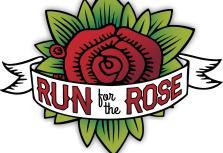
Opportunity Details
Join us as a Run for the Rose volunteer on Sunday, April 16, at the University of Houston! We always need help on race day, and groups are great!!! Individuals under the age of 18 are permitted as long as they are accompanied by an adult chaperone, guardian or parent.Since 2003, the Dr. Marnie Rose Foundation has donated more than $7 million from its Run for the Rose to brain cancer research at MD Anderson Cancer Center and UTHealth Houston as well as pediatric health initiatives, including chronic illness, palliative and hospice care, at Children's Memorial Hermann Hospital.
You can help distribute water at our water station, be course marshals on the course, pass out bottled water at the finish line, or pass out food to our participants. Volunteer needs include but aren't limited to:
Registration
Course Marshal
Water Stations
Survivor Stroll
Family 1K
Children's Medals
Post-Race Party
Tear Down Crew
Available Shifts
| Shift Name | Signup Max | Start | End |
|---|---|---|---|
| Race Day Volunteers | 50 | n/a | n/a |
| Tear Down Crew | 10 | n/a | n/a |

Opportunity Details
Spend the afternoon in the beautiful and Historic East Village as we bring back this event and make it better than ever.We are looking for volunteers to assist in pouring wine samples at participating retailers throughout the East Village. The event runs from 1pm - 6pm.
This event helps to promote Winefest's mission of supporting the arts and hospitality industries in Des Moines as well as bringing people to the East Village.
As a thank you for volunteering, we will give you a 50% discount to Sips in the City, The Grand Tasting or Pork + Pinot.
Available Shifts
| Shift Name | Signup Max | Start | End |
|---|---|---|---|
| Wine Pourer | 15 | n/a | n/a |
| Check In | 2 | n/a | n/a |

Opportunity Details
Our program wouldn't be possible without our incredible community of volunteers!Backpack Buddies feeds hungry children in your neighbourhood. Hungry kids often rely on school-based meal programs during the week, and then suffer in silence over weekends and other school breaks—when meal support is scarce. Backpack Buddies fills this “weekend hunger gap” by discreetly providing bags of food directly to kids every Friday. These bags contain enough meals and snacks to last the weekend and beyond, ensuring kids return to school nourished and ready for the week ahead.
We provide up to 5400 bags of food every weekend to kids living in food insecurity throughout British Columbia. The bags are filled with meals, fresh fruits and snacks and are packed entirely by volunteers at our warehouse.
Your volunteer shift will include packing bags of food for the kids in our program. We will provide a brief orientation at the beginning of your shift, but tasks include:
Ensuring that you have the necessary items at your packing station to fill that week’s bags
Filling the bags with the listed food items for the week and loading the filled bags onto pallets
Assist with clean up and recycling at the end of the shift.
Individual opportunities are available on an ongoing basis. We run shifts from 9:30am to 11:30am OR 1:00pm to 3:00pm. A team member will reach out to schedule when you sign up.
Group opportunities are also available for up to 8 people. Please reach out to Lorraine@backpackbuddies.ca to schedule a volunteer day for your team.
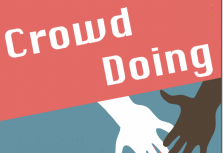
Opportunity Details
Environmental economist Volunteer Catastrophic Wildfire Preventionhttp://preventwildfire.world/
The earth is burning; e.g., USA/California, Brazil, Australia. Regional impacts of wildfires are widespread affecting health, housing, agriculture, biodiversity, and economies. Our post hoc ""pay for damage done"" insurance strategies are woefully inadequate for these rising challenges.
We need to seize the opportunity that is now possible. We think the science has gotten better, and a new inflection point is possible. If we leverage a broader diversity of disciplines with increasing bearing on the intractable challenge of catastrophic wildfire prevention, we can reclaim collective agency. We think that could be possible via increased design science for prevention, mitigation and loss reduction at the landscape and community level.
We plan to develop a year-round alliance of ecosystem partners that can help us transformationally scale catastrophic wildfire risk prevention through better understanding of the opportunities for ""action"" that is preventative and the costs of inaction that these mitigation steps will avoid. We believe that systemic change in wildfire risk reduction is possible and want to speak about the possibility of strategic collaboration to shift the practice of stakeholders at risk so that California does not become increasingly unliveable every year. We believe catastrophic wildfire risk prevention can help us get ahead of the curve counteracting these harms.
CrowdDoing is launching a year-round virtual Global Alliance for Catastrophic Wildfire Prevention with shared values and an open invitation for participation.
Global Alliance for Catastrophic Wildfire Prevention
Shared Principles:
- More reuse of global knowledge regarding how to prevent catastrophic wildfires is necessary.
- We need greater leveraging of knowledge from across disciplines in order to prevent the growing risk of catastrophic wildfires due to climate change.
- We need greater collaboration both locally and globally to achieve the community level goal of regeneration and reduced catastrophic wildfire risk.
- There is interdependence across the ecosystem of approaches and interventions for preventing catastrophic wildfires.
- The more upstream we can intervene effectively to prevent catastrophic wildfires, the more co-benefits for stakeholders we can create
Volunteer role Description for Environmental Engineers
Purpose:
Research, design, plan, or perform engineering duties in the prevention, control, and remediation of environmental hazards using various engineering disciplines. Work may include waste treatment, site remediation, or pollution control technology.
Education and Experience:
Bachelor's degree
Knowledge:
Engineering and Technology - Knowledge of the practical application of engineering science and technology. This includes applying principles, techniques, procedures, and equipment to the design and production of various goods and services.
Mathematics - Knowledge of arithmetic, algebra, geometry, calculus, statistics, and their applications.
Chemistry - Knowledge of the chemical composition, structure, and properties of substances and of the chemical processes and transformations that they undergo. This includes uses of chemicals and their interactions, danger signs, production techniques, and disposal methods.
English Language - Knowledge of the structure and content of the English language including the meaning and spelling of words, rules of composition, and grammar.
Design - Knowledge of design techniques, tools, and principles involved in production of precision technical plans, blueprints, drawings, and models.
Physics - Knowledge and prediction of physical principles, laws, their interrelationships, and applications to understanding fluid, material, and atmospheric dynamics, and mechanical, electrical, atomic and sub-atomic structures and processes.
Law and Government - Knowledge of laws, legal codes, court procedures, precedents, government regulations, executive orders, agency rules, and the democratic political process.
Biology - Knowledge of plant and animal organisms, their tissues, cells, functions, interdependencies, and interactions with each other and the environment.
Customer and Personal Service - Knowledge of principles and processes for providing customer and personal services. This includes customer needs assessment, meeting quality standards for services, and evaluation of customer satisfaction.
Public Safety and Security - Knowledge of relevant equipment, policies, procedures, and strategies to promote effective local, state, or national security operations for the protection of people, data, property, and institutions.
Administration and Management - Knowledge of business and management principles involved in strategic planning, resource allocation, human resources modeling, leadership technique, production methods, and coordination of people and resources.
Computers and Electronics - Knowledge of circuit boards, processors, chips, electronic equipment, and computer hardware and software, including applications and programming.
Skills:
Basic Skills
*Active Learning Understanding the implications of new information for both current and future problem-solving and decision-making.
*Active Listening Giving full attention to what other people are saying, taking time to understand the points being made, asking questions as appropriate, and not interrupting at inappropriate times.
*Critical Thinking Using logic and reasoning to identify the strengths and weaknesses of alternative solutions, conclusions, or approaches to problems.
*Learning Strategies Selecting and using training/instructional methods and procedures appropriate for the situation when learning or teaching new things.
*Mathematics Using mathematics to solve problems.
*Monitoring Monitoring/Assessing performance of yourself, other individuals, or organizations to make improvements or take corrective action.
*Reading Comprehension Understanding written sentences and paragraphs in work-related documents.
*Science Using scientific rules and methods to solve problems.
*Speaking Talking to others to convey information effectively.
*Writing Communicating effectively in writing as appropriate for the needs of the audience.
Social Skills
*Coordination Adjusting actions in relation to others' actions.
*Instructing Teaching others how to do something.
*Negotiation Bringing others together and trying to reconcile differences.
*Persuasion Persuading others to change their minds or behavior.
*Service Orientation Actively looking for ways to help people.
*Social Perceptiveness Being aware of others' reactions and understanding why they react as they do.
Complex Problem Solving Skills
*Complex Problem Solving Identifying complex problems and reviewing related information to develop and evaluate options and implement solutions.
Technical Skills
*Equipment Maintenance Performing routine maintenance on equipment and determining when and what kind of maintenance is needed.
*Equipment Selection Determining the kind of tools and equipment needed to do a volunteer role.
*Installation Installing equipment, machines, wiring, or programs to meet specifications.
*Operation and Control Controlling operations of equipment or systems.
*Operations Analysis Analyzing needs and product requirements to create a design.
*Operations Monitoring Watching gauges, dials, or other indicators to make sure a machine is working properly.
Programming Writing computer programs for various purposes.
*Quality Control Analysis Conducting tests and inspections of products, services, or processes to evaluate quality or performance.
*Repairing Repairing machines or systems using the needed tools.
*Technology Design Generating or adapting equipment and technology to serve user needs.
*Troubleshooting Determining causes of operating errors and deciding what to do about it.
Systems Skills
*Judgment and Decision Making Considering the relative costs and benefits of potential actions to choose the most appropriate one.
*Systems Analysis Determining how a system should work and how changes in conditions, operations, and the environment will affect outcomes.
*Systems Evaluation Identifying measures or indicators of system performance and the actions needed to improve or correct performance, relative to the goals of the system.
Resource Management Skills
*Management of Financial Resources Determining how money will be spent to get the work done, and accounting for these expenditures.
*Management of Material Resources Obtaining and seeing to the appropriate use of equipment, facilities, and materials needed to do certain work.
*Management of Personnel Resources Motivating, developing, and directing people as they work, identifying the best people for the volunteer role.
*Time Management Managing one's own time and the time of others.
Desktop Computer Skills
· SpreadsheetsUsing a computer application to enter, manipulate, and format text and numerical data; insert, delete, and manipulate cells, rows, and columns; and create and save worksheets, charts, and graphs.
· PresentationsUsing a computer application to create, manipulate, edit, and show virtual slide presentations.
· InternetNavigating the Internet to find information, including the ability to open and configure standard browsers; use searches, hypertext references, and transfer protocols; and send and retrieve electronic mail (e-mail).
· NavigationUsing scroll bars, a mouse, and dialog boxes to work within the computer's operating system. Being able to access and switch between applications and files of interest.
· Word ProcessingUsing a computer application to type text, insert pictures, format, edit, print, save, and retrieve word processing documents.
· GraphicsWorking with pictures in graphics programs or other applications, including creating simple graphics, manipulating the appearance, and inserting graphics into other programs.
· DatabasesUsing a computer application to manage large amounts of information, including creating and editing simple databases, inputting data, retrieving specific records, and creating reports to communicate the information.
Work Context:
Body Positioning
Requires sitting
Communication
Requires telephone conversations
Requires use of electronic mail
Requires writing letters and memos
Requires face-to-face discussions with individuals or teams
Requires contact with others (face-to-face, by telephone, or otherwise)
Competition
Requires competition or awareness of competitive pressures
Environment
Includes exposure to contaminants
Impact of Decisions
Requires making decisions that impact the results of co-workers, clients or the company
Opportunity to make decisions without supervision
Requires making decisions that affect other people, the financial resources, and/or the image and reputation of the organization
Level of Challenge
Freedom to determine tasks, priorities, and goals
Requires being exact or highly accurate
Pace and Scheduling
Requires meeting strict deadlines
Personal Interaction
Requires work with external customers or the public
Requires coordinating or leading others in accomplishing work activities
Requires work with others in a group or team
Responsibility for Others
Includes responsibility for work outcomes and results
Includes responsibility for the health and safety of others
Work Attire
Requires wearing common protective or safety equipment
Work Setting
Requires working in a closed vehicle or equipment
Requires working outdoors, exposed to all weather conditions
Requires working indoors in environmentally controlled conditions
Tasks:
Assist in budget implementation, forecasts, or administration.
Prepare, maintain, or revise quality assurance documentation or procedures.
Develop proposed project objectives and targets and report to management on progress in attaining them.
Request bids from suppliers or consultants.
Monitor progress of environmental improvement programs.
Serve as liaison with federal, state, or local agencies or officials on issues pertaining to solid or hazardous waste program requirements.
Provide assistance with planning, quality assurance, safety inspection protocols, or sampling as part of a team conducting multimedia inspections at complex facilities.
Provide technical support for environmental remediation or litigation projects, including remediation system design or determination of regulatory applicability.
Collaborate with environmental scientists, planners, hazardous waste technicians, engineers, experts in law or business, or other specialists to address environmental problems.
Assess the existing or potential environmental impact of land use projects on air, water, or land.
Advise corporations or government agencies of procedures to follow in cleaning up contaminated sites to protect people and the environment.
Develop, implement, or manage plans or programs related to conservation or management of natural resources.
Inform company employees or other interested parties of environmental issues.
Advise industries or government agencies about environmental policies and standards.
Provide environmental engineering assistance in network analysis, regulatory analysis, or planning or reviewing database development.
Prepare hazardous waste manifests or land disposal restriction notifications.
Develop or present environmental compliance training or orientation sessions.
Assess, sort, characterize, or pack known or unknown materials.
Write reports or articles for Web sites or newsletters related to environmental engineering issues.
Develop site-specific health and safety protocols, such as spill contingency plans or methods for loading or transporting waste.
Obtain, update, or maintain plans, permits, or standard operating procedures.
Prepare or present public briefings on the status of environmental engineering projects.
Provide administrative support for projects by collecting data, providing project documentation, training volunteer role, or performing other general administrative duties.
Coordinate or manage environmental protection programs or projects, assigning or evaluating work.
Inspect industrial or municipal facilities or programs to evaluate operational effectiveness or ensure compliance with environmental regulations.
Design, or supervise the design of, systems, processes, or equipment for control, management, or remediation of water, air, or soil quality.
Direct installation or operation of environmental monitoring devices or supervise related data collection programs.
Prepare, review, or update environmental investigation or recommendation reports.
Activities:
Making Decisions and Solving Problems
Evaluating Information to Determine Compliance with Standards
Analyzing Data or Information
Getting Information
Investigate the environmental impact of projects.
Communicating with Supervisors, Peers, or Subordinates
Assist engineers or scientists with research.
Confer with other personnel to resolve design or operational problems.
Confer with technical personnel to prepare designs or operational plans.
Monitoring Processes, Materials, or Surroundings
Monitor activities affecting environmental quality.
Processing Information
Updating and Using Relevant Knowledge
Working with Computers
Communicating with People Outside the Organization
Explain project details to the general public.
Developing and Building Teams
Establishing and Maintaining Interpersonal Relationships
Interpreting the Meaning of Information for Others
Organizing, Planning, and Prioritizing Work
Prepare detailed work plans.
Identifying Objects, Actions, and Events
Documenting/Recording Information
Maintain operational records or records systems.
Prepare operational reports.
Prepare procedural documents.
Prepare research or technical reports on environmental issues.
Prepare technical or operational reports.
Write reports or evaluations.
Estimating the Quantifiable Characteristics of Products, Events, or Information
Coordinating the Work and Activities of Others
Thinking Creatively
Design environmental control systems.
Determine operational criteria or specifications.
Monitoring and Controlling Resources
Purchase materials, equipment, or other resources.
Providing Consultation and Advice to Others
Advise others regarding green practices or environmental concerns.
Scheduling Work and Activities
Developing Objectives and Strategies
Develop technical methods or processes.
Drafting, Laying Out, and Specifying Technical Devices, Parts, and Equipment
Guiding, Directing, and Motivating Subordinates
Direct environmental development activities.
Prepare project budgets.
Inspecting Equipment, Structures, or Materials
Inspect facilities or sites to determine if they meet specifications or standards.
Test characteristics of materials or structures.
Resolving Conflicts and Negotiating with Others
Judging the Qualities of Objects, Services, or People
Coaching and Developing Others
Training and Teaching Others
Teach safety standards or environmental compliance methods.
Train personnel on proper operational procedures.
Performing for or Working Directly with the Public
